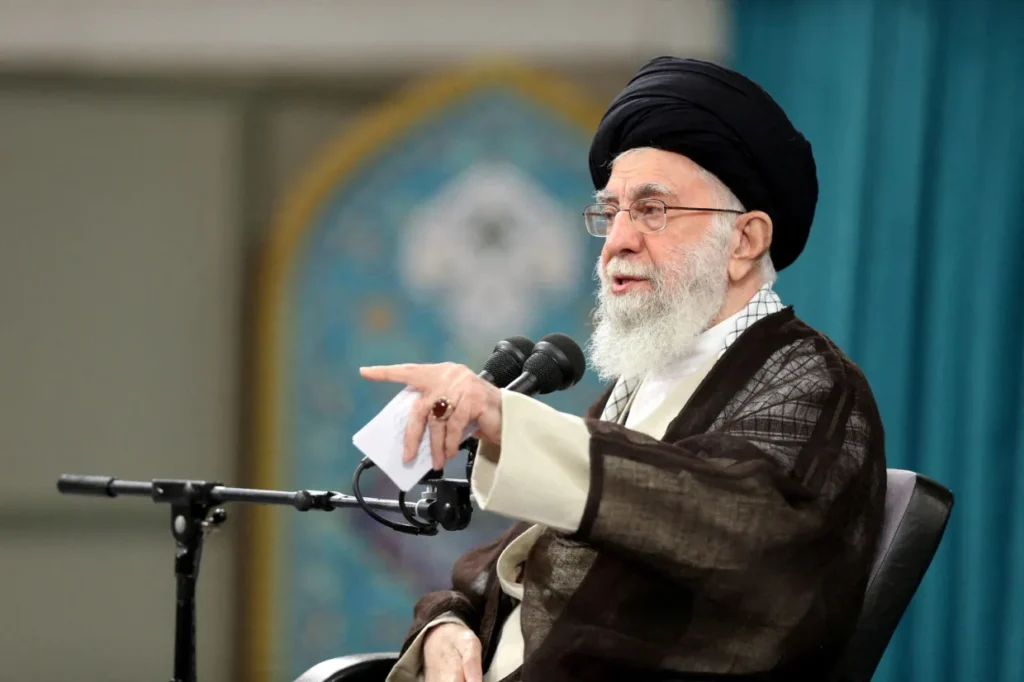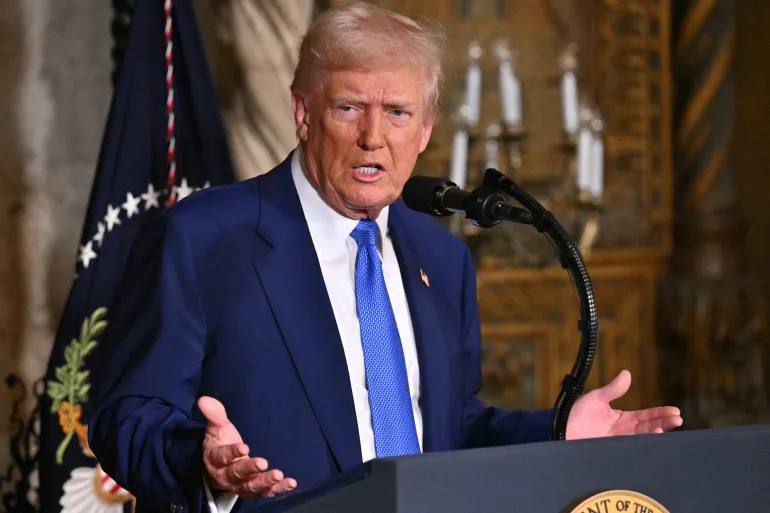Tensions in the Middle East have dramatically escalated after Iran issued stark warnings to neighboring countries, threatening military retaliation should they support any US-led offensive. The warnings come as Supreme Leader Ayatollah Ali Khamenei firmly rejected US President Donald Trump’s renewed demand for direct nuclear negotiations.

According to senior Iranian officials, Iran delivered formal communications to Iraq, Kuwait, the United Arab Emirates, Qatar, Turkey, and Bahrain. These notices declared that any cooperation with a potential US military operation—including allowing use of airspace or territory—would be interpreted as a hostile act and met with forceful retaliation.
Despite Ayatollah Khamenei’s refusal to engage in direct talks, Iranian officials have expressed interest in continuing indirect negotiations via Oman—a traditional diplomatic channel between Tehran and Washington.
“Indirect talks offer a chance to evaluate Washington’s seriousness about a political solution with Iran,” an Iranian official told reporters. While acknowledging the fragility of the process, the official suggested that critical talks could occur soon—if the US shows goodwill.
Yet urgency surrounds the matter, as Iran reportedly believes there is only a two-month window to secure an agreement before Israel might unilaterally act against Tehran’s nuclear infrastructure.
Ayatollah Khamenei has reportedly placed Iran’s military on high alert. Iranian warnings delivered to regional nations were accompanied by grave messages, including threats to strike any US base found operating within those territories.
Turkish officials denied receiving such a message but acknowledged that communications might be routed through alternate diplomatic channels. Meanwhile, Iranian state media reported that Kuwait assured Tehran it would not allow foreign aggression to be launched from its soil.
Iran’s ally Russia has condemned any threats of American military action. While publicly supportive, some Iranian officials remain wary of Moscow’s loyalty, suggesting it hinges on the political calculus between Presidents Putin and Trump.

In a chilling diplomatic gesture, President Trump recently sent a letter to Ayatollah Khamenei proposing direct talks to strike a fresh nuclear accord. The offer, however, was swiftly declined.
The international community has voiced concern over Iran’s recent uranium enrichment, which the UN nuclear watchdog claims has reached near weapons-grade levels. Western powers argue there is no civilian justification for such enrichment intensity.
While Iran insists it has no intention of building a nuclear weapon, it maintains that its ballistic missile program remains off-limits in any talks—drawing a firm red line in negotiations.
According to military analysts, the US and Israel are preparing for possible coordinated military action against Iran. The US has increased its naval presence in the region, deploying the aircraft carriers USS Carl Vinson and USS Harry S. Truman—both capable of striking Iranian-linked targets.
Satellite imagery confirms the deployment of six B-2 Spirit stealth bombers to Diego Garcia in the Indian Ocean. These bombers, designed to evade radar and carry heavy bunker-busting bombs, are reportedly being positioned for potential deep-strike missions on Iranian nuclear sites.
Accompanying the stealth fleet are six Stratotanker refueling aircraft, essential for ensuring the long-range bombers can make the round trip from Diego Garcia to targets within Iran.
Iran has responded to US military posturing with its own threats. A senior Iranian commander ominously warned that American bases in the region are vulnerable, saying, “They are in a glass house and should not throw stones.”
As tensions mount and both sides position for conflict, European leaders continue pushing for a diplomatic solution that would limit Iran’s nuclear activities and prevent full-scale war.
The next few weeks could prove pivotal in determining whether diplomacy prevails—or whether the Gulf spirals into another devastating conflict.



